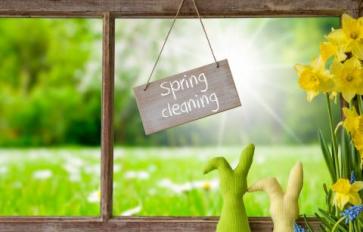
Ever store food only to have it spoil a few days later? There might be a reason for that: Improper storage can definitely lead to faster food spoilage. This really sucks considering it's a waste of money. Not to mention food waste is very bad for the environment. If you'd like to prevent food from rotting or molding before you can get your hands on it, here are some important storage tips to remember.
Why Reducing Food Waste Matters
Before I say any more, it’s important I take a moment to explain why food waste is such a big deal. For starters, 40 percent of food in America is wasted. Considering there are so many hungry mouths to feed (821 million people globally go hungry and are undernourished, to be exact), that’s a crime in and of itself. The sad truth is we have enough food to feed everyone, but food waste prevents us from doing so.
Whenever food gets thrown into the trash, it goes straight to a landfill where it does not decompose properly. Instead, it produces methane, a powerful greenhouse gas that’s 30 times more potent than carbon dioxide. Thanks to this little fact, food waste is a pretty huge contributor to climate change.
There’s also the factor of money: The average American family of four wastes $1500 a year thanks to food waste. How, you ask? Simple: When you toss food in the trash, you’re also tossing away money. For example, let's say you buy two cartons of strawberries for $4.50. They sit in the back of the fridge and are forgotten about. When you find them, they’re all moldy and not edible anymore, so you dump them out. That’s literally $9 wasted. See how that can add up real quick?
Also, any food that supermarkets cannot sell by a certain date will get thrown out too. This is not only a waste of money, but it’s also a waste of resources. Think about how much time, labor, water, and fertilizer went into growing all those produce items. Not to mention, when grocery stores dump food, it’s usually still perfectly edible, so it should be donated to food pantries instead. So many malnourished people could really use the additional food, instead of it going to a landfill and creating methane gas.
How To Store Fruits & Vegetables Properly
Now that you know why it’s important to reduce food waste, there is some good news. One of the best tactics you can take to stop food waste in its tracks is learning how to properly store your food. Believe it or not, produce items can be rather finicky. They’re all very sensitive to four things: temperature, lighting, proximity, and humidity. Understanding what your produce items need can help them last longer, which results in less food destined for the trash.
Some items should be kept in the fridge at 40 degrees F or lower at all times, like asparagus, cauliflower, green beans, leafy greens, carrots, broccoli, cherries, berries, apples, and grapes. Other items, like squash, melons, and tomatoes, can be kept on the counter, but away from direct sunlight. Also, items like potatoes and onions should always be kept in a dark, cool place, such as a cabinet. Let pears, avocadoes, nectarines, peaches, and plums ripen on the counter before storing them in the refrigerator.
As a general rule, never store fresh vegetables and fruits in the same bin. Fruits give off natural gases as they ripen, making other nearby produce spoil quicker. Also, make sure tomatoes, bananas, and apples are stored away from one another, to prevent quicker spoilage.
If you still find some food items going limp, like celery or kale, don’t throw them away: I recommend putting them into some water. Treating produce like flowers will perk them right back up. Just fill a glass jar halfway with water and put the produce inside, stems first. You can do this with kale, broccoli, lettuce, carrots, celery, and lots of other vegetables. Be sure to change the water every day you don’t use them.
Whatever you don’t wind up getting to, you can also freeze, preserve, or can. I tend to do this when there’s an abundance of fruits and vegetables, or when I’m trying to save some seasonal berries for the winter months ahead.








